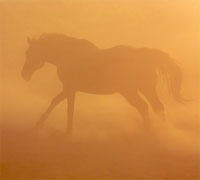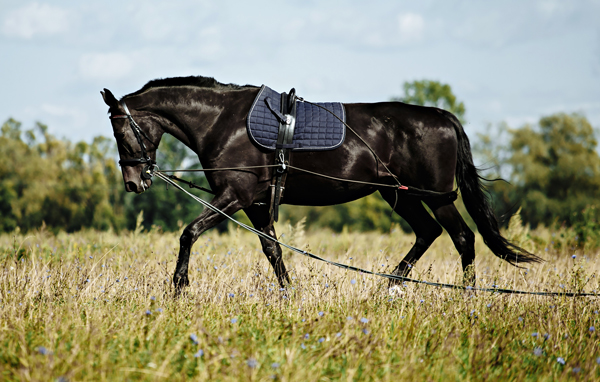Last Sunday was my second of three judging jobs this month. I knew ahead of time that the level of competition and the venue itself was a step-up from my previous assignment. That meant I had to delve into my super duper horse show judge’s wardrobe and wear an actual ladies floral blouse and a snazzy cardigan sweater and top it all off with coordinating jewelry. When I glanced in the mirror before I left my house (at 6:00 a.m. for the long drive to San Diego) I thought, “Wow! If I didn’t know any better I’d think I was an actual career woman!”
The day went well and I enjoyed myself. But while I sat in the judge’s booth I reflected on what goes through my mind when I’m evaluating a class. I think my favorite classes to judge are huntseat equitation. Like most judges, I look first for a strong lower leg. And there’s a certain “look” that a rider with a secure seat and quiet hands possesses. They aren’t just propped up on their horse; they’re effectively communicating with their horse through their aids.
Probably the most contentious classes to judge are the so-called “hack” classes. These are the hunter under saddle classes. When these horses perform at the walk, trot and canter I’m looking for the best mover, the horse with a long, low, ground-covering stride. Of course, there are going to be several good movers in an under saddle class, so I look next for the horse that is naturally balanced and happily cruising along, lightly on the bit. A high-headed horse that leans on its rider’s hands for support is not going to do well in a hunter under saddle class.
And that brings me to the one incident during the entire 10-hour day when someone asked to speak to the judge. I don’t fret over such requests anymore, because I’ve been judging for about a dozen years and I am confident in my decisions. Plus I keep detailed notes (although I doubt anyone but me can decipher my symbols and shorthand) so I can quickly explain my placings in every class. Yet when someone asks my reasoning behind the order of the ribbons I know it can mean only one thing: They aren’t happy.
Since I had a few moments while the jumps were being raised for the next division, I spoke with this woman. She had questions about the baby green hunter under saddle class, where her horse had not placed. With a few whispers from the show office manager, I learned that this woman not only owned the horse, but was also its trainer and rider. Plus, she was the Horse Show Mom for the young boy who rode the same horse later in the kids’ classes. And he hadn’t done well, either. With that knowledge, I took a deep breath and prepared to face a defensive woman whose day had not gone as planned.
I held my clipboard and flipped through the pages of scorecards. I rattled off my marks for the horse in her son’s hunter classes, and she politely acknowledged that yes, the horse had trotted in the corners.
I explained that earned the horse an automatic score of 60, which kept it from a ribbon.
She accepted that. But she was stuck on the baby green hunters under saddle class, the hack class where she had ridden the horse. “Why didn’t I pin?”
These are the moments where I get frustrated. What am I supposed to say that’s helpful but not hurtful? I’m sure she loves her horse. I’m sure she thinks he’s the most wonderful young hunter on the west coast. Anything I say is going to come across as either demeaning or disparaging. So I said carefully, “I really like your horse. He reminds me a lot of a horse I used to show. And that’s a good thing. But there were a lot of good movers in that class. And while your horse is a nice mover and a nice type of horse, he seemed very tense. It looked like you couldn’t soften your feel of his mouth for fear he’d get quick.”
She thought for a moment, perhaps recalling how her horse leaned on her hands, despite the fact that he had a double-twisted wire bit in his mouth. (Yes, I notice such things).
She said softly, “So the other horses….”
I envisioned the horse that won the class: a glossy black horse with a sweet expression that moved softly around the arena. “The other horses were just a little bit better than yours,” I said. “And I liked the black horse the best.”
There. I said it. I was honest and forthright. But I smiled when I delivered the news.
And guess what? She smiled back. “Okay,” she said. “Thank you.”
Apparently I needed to give the woman a little more credit. She was truly seeking some input to help her with her multi-tasking as she struggled to do the best with her horse and her son. I climbed back up the stairs to my perch in the judge’s booth and realized how tough it must be to have the judge explain the simple truth. Sometimes it’s not that you or your horse had a major fault that kept you from a ribbon. Sometimes the judge just liked another horse more than yours.
Back to Life with Horses





That’s always a tough spot for both owner/rider and judge. But it sounds like you handled it well and she was willing to listen.
Sometimes it really does come down to which horse the judge would rather ride! Next weekend, the judge may prefer your horse over the rest.
I really appreciate your explanation of why you chose one horse over another. It makes sense to me and helps me understand what a judge is thinking.